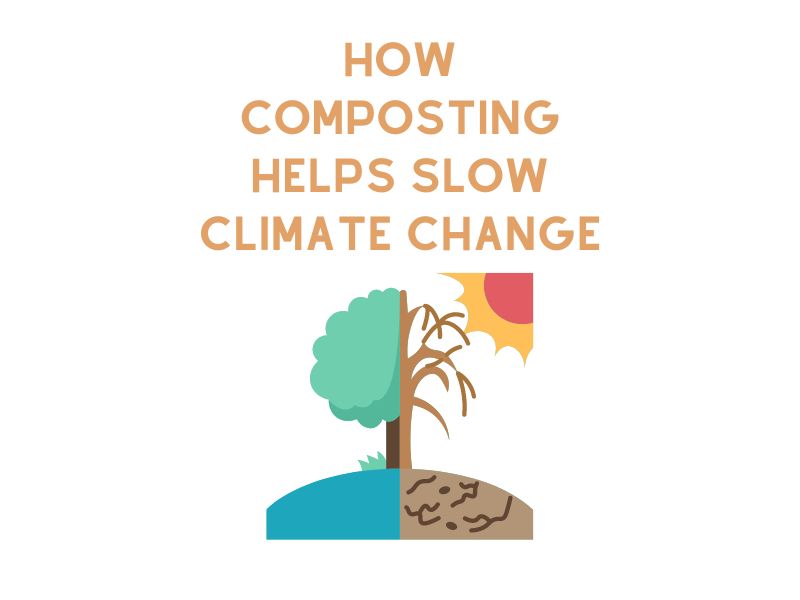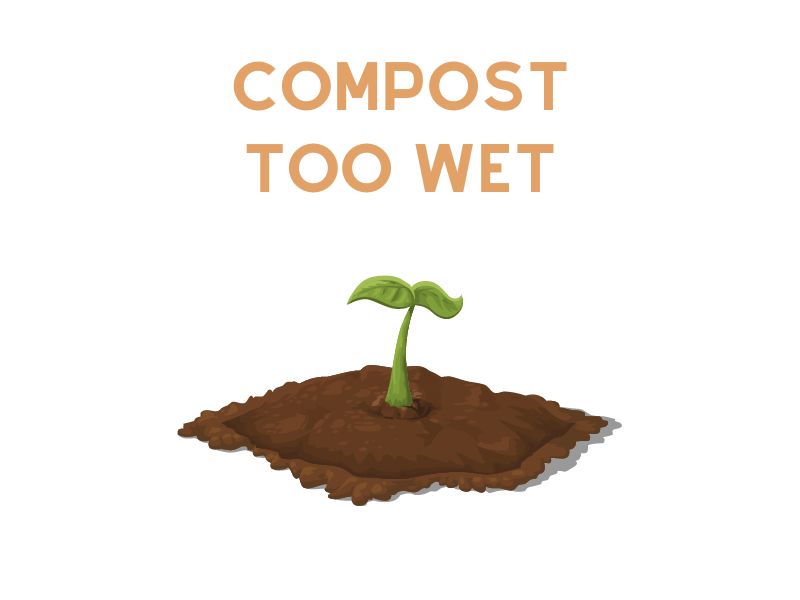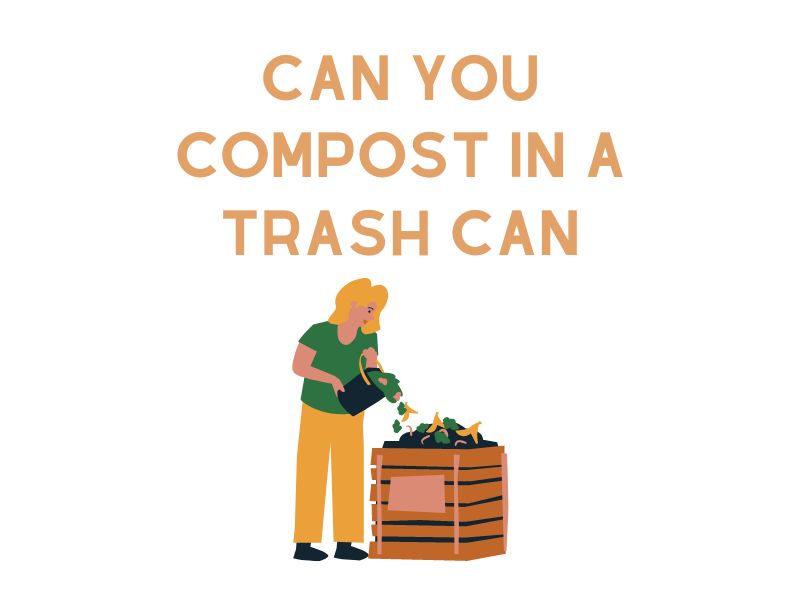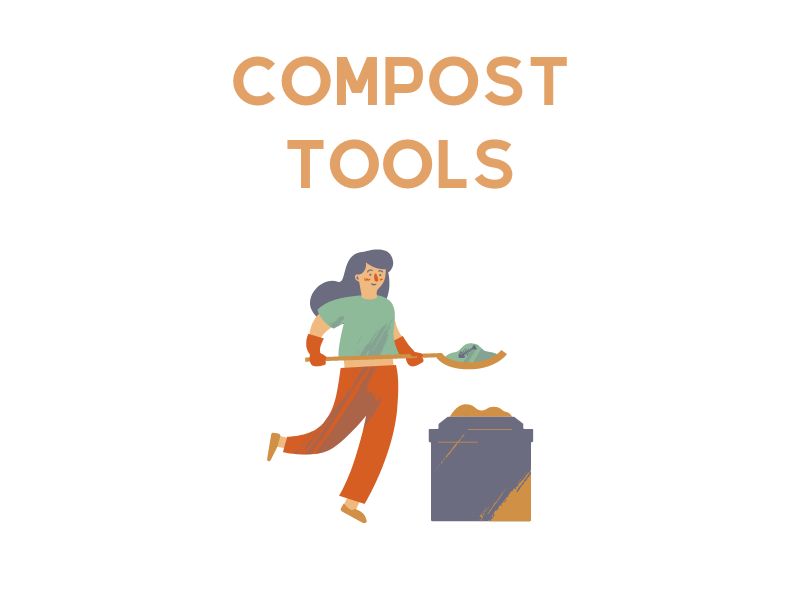Climate change, characterized by rising temperatures, erratic weather patterns, and the accelerated melting of polar ice, stands as one of the most formidable challenges of the 21st century. Its far-reaching impacts encompass every facet of life on Earth, from the smallest organisms in the ocean to the vast swathes of forested land, from bustling urban centers to remote rural villages. As the consequences of our actions, particularly those stemming from the Industrial Revolution, become clearer, the urgency to adopt sustainable and regenerative practices has never been more palpable. Enter composting – an age-old method that, despite its simplicity, holds profound potential in the fight against climate change. By understanding and harnessing the power of composting, we not only take strides toward mitigating our carbon footprint but also rejuvenate the very soil that sustains life. This article delves into the intricacies of composting and its pivotal role in combating the climate crisis.
The Carbon Cycle and Composting
At the heart of our planet’s ecological balance lies the carbon cycle, a vast and intricate system of processes where carbon compounds shuttle between various reservoirs including the atmosphere, oceans, terrestrial biosphere, and the inner depths of the Earth. This cycle ensures that carbon, an essential building block of life, is continuously recycled and available for organisms.
Photosynthesis, for instance, captures carbon dioxide from the air, converting it into organic matter within plants. When these plants die or are consumed by animals, this carbon either finds its way back into the atmosphere through processes like respiration and decay or becomes integrated into the soil. However, human activities, particularly the burning of fossil fuels and deforestation, have disrupted this natural equilibrium, leading to an excessive buildup of carbon dioxide in the atmosphere and, subsequently, global warming.
Composting presents an effective strategy to restore part of this balance. When organic material, such as food scraps and yard waste, is composted, it undergoes aerobic decomposition. This means microorganisms break down the material in the presence of oxygen, converting a good portion of the carbon into stable organic matter known as humus. Unlike the rapid release of carbon dioxide in landfills due to anaerobic (absence of oxygen) decomposition, the carbon in humus can remain sequestered for decades or even centuries. This process of composting not only reduces immediate carbon emissions but also enriches the soil with carbon-rich humus, strengthening its capacity to act as a carbon sink. By embracing composting, we can redirect a significant amount of carbon from the atmosphere and help revitalize the natural rhythm of the carbon cycle.
Methane Emissions and Their Reduction
Methane (CH₄), a colorless, odorless gas, plays a significant but often under-discussed role in the global climate equation. While its presence in the atmosphere is less abundant compared to carbon dioxide (CO₂), its global warming potential is alarmingly potent — over a 20-year period, a molecule of methane can trap heat in the atmosphere approximately 84-87 times more effectively than a molecule of CO₂.
A predominant source of anthropogenic methane emissions is the decomposition of organic materials in landfills. When organic matter, such as food waste, gets buried in landfills, it breaks down under anaerobic conditions (meaning without sufficient oxygen). In this environment, specific groups of microorganisms metabolize the waste, producing methane as a byproduct. This methane either seeps into the atmosphere directly or is sometimes captured and burned for energy, but not always efficiently.
Here’s where composting offers a transformative solution. In a composting environment, organic matter decomposes aerobically (with ample oxygen). Aerobic decomposition primarily results in the production of CO₂ and water, with only negligible amounts of methane. By simply shifting the decomposition of organic waste from anaerobic landfills to aerobic composting systems, we can drastically reduce methane emissions.
Moreover, composting has a two-fold benefit. Firstly, by preventing methane release at the source and secondly, by producing a valuable end product—compost—that can further sequester carbon when incorporated into the soil. Thus, promoting composting is not only about waste management; it’s also a strategic move towards a more climate-resilient future.
Enhancing Soil Health and Its Benefits
Soil, often viewed as mere dirt, is a vibrant, living ecosystem teeming with life. From tiny microorganisms to earthworms, a plethora of organisms call soil their home. This intricate web of life plays a pivotal role in maintaining the Earth’s ecological equilibrium. Soil health is, therefore, of paramount importance, and composting offers a powerful tool to revitalize and nourish this critical resource.
- Improvement of Soil Structure: One of the most evident benefits of incorporating compost into soil is the enhancement of its structure. Good soil structure allows for the formation of aggregates—clumps of soil particles bound together. These aggregates improve the soil’s ability to retain water and facilitate root penetration. With better structure, soil erosion is reduced, and water infiltration improves, mitigating the chances of surface runoff and associated soil loss.
- Boost in Water Retention: Compost acts like a sponge, holding onto water and releasing it slowly over time. This capacity is particularly valuable in drought-prone areas, ensuring that plants have a steady supply of moisture even during dry spells.
- Introduction of Beneficial Microorganisms: Compost is a microbial hotspot. When added to soil, it introduces a vast array of beneficial microorganisms, which play essential roles in breaking down organic matter, fixing nitrogen, and suppressing soil-borne diseases. The microbial diversity can lead to improved plant health, reduced dependency on chemical pesticides, and increased resilience against pests and diseases.
- Reduced Need for Synthetic Fertilizers: Rich in essential nutrients, compost acts as a slow-release fertilizer, providing plants with a steady stream of nutrients over time. By enhancing the natural fertility of the soil, compost diminishes the need for synthetic fertilizers, which, when used excessively, can lead to nutrient runoff and subsequent water pollution.
- Carbon Sequestration: Healthy soils, particularly those enriched with organic matter from compost, have an increased capacity to pull and store carbon from the atmosphere, acting as carbon sinks. This process aids in mitigating the greenhouse effect and helps in the broader fight against global climate change.
In summary, enhancing soil health is not merely an agronomic concern; it is an ecological imperative. By adopting composting practices, we don’t just nourish the soil; we invest in a more sustainable, resilient, and vibrant ecosystem that benefits both humanity and the environment at large.
Economic and Societal Benefits
The economic implications of composting are manifold. By diverting organic waste from landfills, municipalities can realize significant savings in waste disposal costs. Moreover, the composting industry can act as a catalyst for job creation, providing roles in both urban and rural settings. For farmers and gardeners, the enriched compost reduces the dependency and associated costs on synthetic fertilizers and pesticides.
Challenges in Composting and Solutions
Like all interventions, composting has its set of challenges. For instance, space constraints in urban areas, potential odor issues, and the initial setup cost can be barriers. However, modern solutions, like sealed composting bins, community composting programs, and technological advancements in composting techniques, are paving the way to address these challenges. Several cities and countries have showcased the potential of effective composting programs, serving as beacons of inspiration.
Conclusion
As the world grapples with the immense challenge of climate change, the solutions that emerge are both grand in scale and humble in nature. Among these solutions, composting stands out as a beacon of hope, marrying the simplicity of ancestral practices with the urgency of contemporary environmental demands.
The transformative power of composting transcends its primary function of waste management. It serves as a testament to the interconnectedness of Earth’s systems. By diverting organic waste from methane-producing landfills, we curb potent greenhouse gas emissions. By returning nutrient-rich compost to the soil, we rejuvenate landscapes, enhance agricultural yields, and bolster resilience against both droughts and floods. In doing so, we also support the intricate web of life beneath our feet, from beneficial microbes to earthworms, fostering a vibrant subterranean ecosystem.
Furthermore, the societal and economic ramifications of widespread composting cannot be understated. Economies can benefit from sustainable job creation in the composting sector, reduced costs in waste management, and the diminishing need for synthetic agricultural inputs. Communities can rally around the shared goal of sustainability, strengthening social bonds, and fostering a deeper connection to the land.
Yet, it’s essential to remember that composting, as promising as it is, forms just one piece of the vast puzzle of climate solutions. It represents a step — a crucial and achievable step — that individuals, communities, and nations can take toward a more harmonious coexistence with our planet.
In this intricate dance of carbon cycles, microbial activity, and human intervention, composting offers a profound lesson: sometimes, the solutions to our most daunting challenges lie right beneath our feet. Embracing composting is not just an environmental choice; it’s a commitment to future generations, ensuring they inherit a planet as bountiful and wondrous as the one we’ve been privileged to know.





